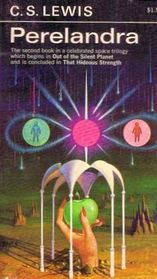 The first book to analyze C. S. Lewis and his popularity was written by an American, Chad Walsh, an English professor at Beloit College in Wisconsin. It came out in 1949 with the title C. S. Lewis: Apostle to the Skeptics.
The first book to analyze C. S. Lewis and his popularity was written by an American, Chad Walsh, an English professor at Beloit College in Wisconsin. It came out in 1949 with the title C. S. Lewis: Apostle to the Skeptics.
Walsh had Lewis to thank for his own conversion. “In my case there was no childhood faith,” Walsh wrote in an account of how he eventually found the Christian path. “If I ever believed in God as a small child, no memory of the time remains with me. I regarded myself as an atheist from the moment I learned to read–and, indeed, pamphlet editions of Ingersoll, et cetera, were part of my earliest reading.”
At the University of Virginia, Walsh, as a student, found himself free of the dominant Christianity of his small hometown of Marion, Virginia, and flourished as a convinced atheist—at least until world circumstances forced him to think more seriously.
The rise of Hitler in Germany, and the growing awareness of the actions of that regime, forced him to confront the problem of evil in the world. Walsh’s companions in atheism and/or agnosticism, when challenged by Walsh to come up with a response to what Hitler was doing, would provide excuses, albeit excuses that were actually consistent with their worldview.
Walsh recounts, “They agreed with me that the world was a senseless jungle. Very well, they reasoned, if the world is a jungle, it’s absurd to speak of right and wrong. Everything is relative. Hitler thinks he’s doing right to invade Poland and murder the Jews. Very well, it is right for him. It’s all in the way you look at it.” That response shook him. He knew he had to come to grips with the reality of evil.
Coming to grips with evil also meant coming to grips with the whole idea of right and wrong and where the concepts originated. That led him to finally consider not only the existence of God but what his response to this God might entail. In this transition period of his life, Walsh came across some of Lewis’s writings. One, in particular, changed his life forever.
 It was in either 1944 or 1945, he recalls, on a short vacation to Vermont, that a friend enthusiastically lent him a book she had just finished reading; she just knew he would love it. That book was Perelandra, the second in Lewis’s Ransom Trilogy in which the protagonist, Elwin Ransom, is transported to Venus to save an innocent world from falling into sin.
It was in either 1944 or 1945, he recalls, on a short vacation to Vermont, that a friend enthusiastically lent him a book she had just finished reading; she just knew he would love it. That book was Perelandra, the second in Lewis’s Ransom Trilogy in which the protagonist, Elwin Ransom, is transported to Venus to save an innocent world from falling into sin.
Walsh was transported as well: “I quickly consumed it from cover to cover. I was struck first of all by the sheer beauty of the book. It transported me into a kind of Elysian Fields–or better yet, an unspoiled Eden, inhabited by the innocent and unfallen.”
A second revelation was that, even though he had always been a science fiction fan, he had never read any science fiction like this, where it could be used as a “vehicle of great philosophic and psychological myth.” The third revelation, though, was the greatest of all:
Finally, and most importantly, in Perelandra I found my imagination being baptized. At the time I was slowly thinking, feeling, and fumbling my way towards the Christian faith and had reached the point where I was more than half convinced that it was true. This conviction, however, was a thing more of the mind than of the imagination and heart.
In Perelandra I got the taste and smell of Christian truth. My senses as well as my soul were baptized. It was as though an intellectual abstraction or speculation had become flesh and dwelt in its solid bodily glory among us.
As Walsh looked back on this event years later, he came to the realization that the way he found Lewis was quite typical. A person reads something by Lewis, becomes so enthused that he/she lends the book to a friend, who in turn catches that enthusiasm and passes it on to others.
For Walsh, “The result was that I began buying everything else by him that was available in America and also passed along word of the discovery to other friends. It was as though I had discovered a new ingredient in my intellectual, emotional, and spiritual diet that I had unconsciously desired but had not previously found. I think many others, coming on Lewis for the first time, felt the same way.”
As you might guess, the above is excerpted from my new book, America Discovers C. S. Lewis, which will be available in a few short weeks.
